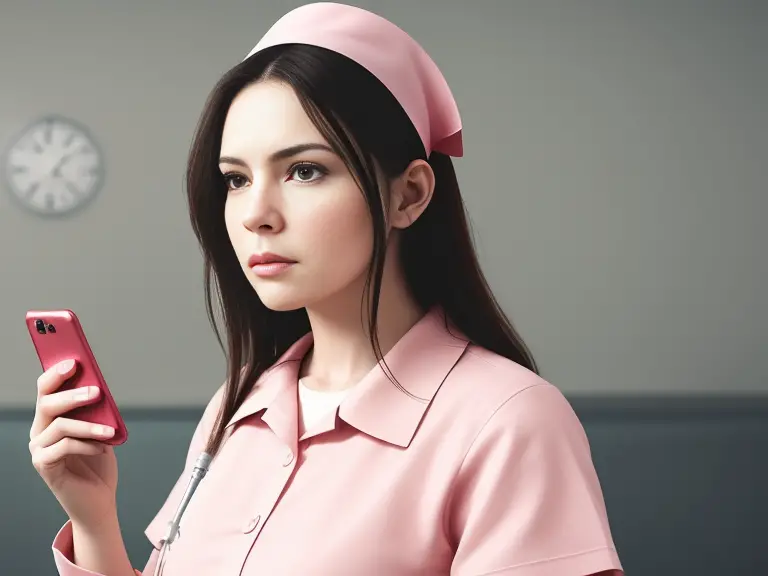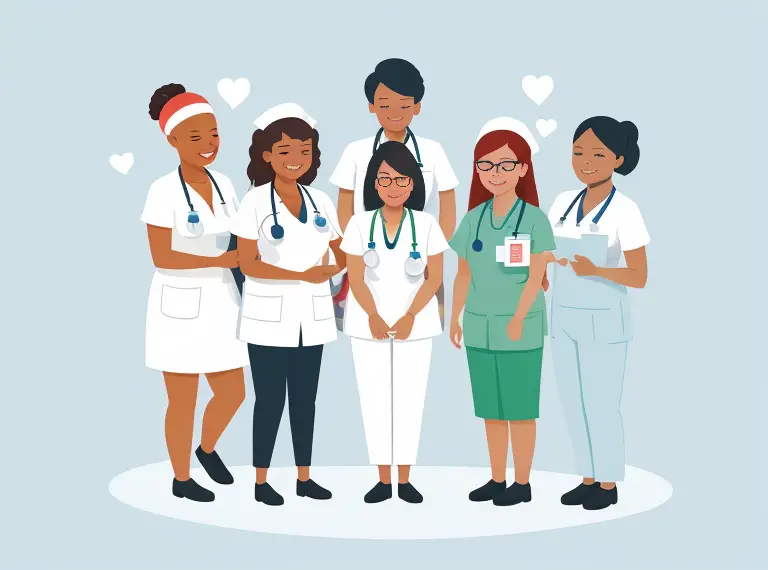No, assuming that male nurses are gay is a stereotype that is not based on factual evidence. It is important to challenge these assumptions and promote inclusivity and respect in the nursing profession.
Unpacking Stereotypes
Stereotypes surrounding male nurses have their roots in societal gender norms and traditional notions of masculinity. Nursing has historically been seen as a feminine profession, leading to the assumption that men who choose this career must be gay. This stereotype disregards the diversity and individuality of people’s career choices and reinforces harmful gender stereotypes.
Dismantling Misconceptions
Assuming someone’s sexual orientation based on their profession is not only unfair but also perpetuates harmful stereotypes. Sexual orientation is a personal aspect of an individual’s identity and should not be assumed or judged based on their choice of profession.
There is no evidence to suggest that male nurses are more likely to be gay than individuals in other professions. Sexual orientation is diverse among male nurses, just as it is among any other group of individuals. Stereotyping male nurses based on their sexual orientation not only undermines their professionalism but also perpetuates discrimination and bias.
The Change in Nursing Landscape
Over the years, there has been a noticeable increase in the number of male nurses entering the profession. This shift reflects the changing dynamics of gender roles and the breaking down of traditional stereotypes. Male nurses bring unique perspectives and experiences to the field, enriching the overall healthcare landscape.
Male nurses play a vital role in the healthcare sector, contributing their skills, knowledge, and compassion to patient care. They bring diversity to multidisciplinary teams, helping create a more holistic approach to healthcare.
Encouraging Respect and Equality in the Nursing Profession
To foster a respectful and equal nursing profession, it is crucial to promote inclusivity and diversity. This includes challenging stereotypes, embracing individuals from all genders and sexual orientations, and creating an environment where everyone feels valued and respected.
In conclusion, it is essential to respect all individuals in the nursing profession regardless of their gender or sexual orientation. Assuming that male nurses are gay based on stereotypes is unfair and perpetuates harmful biases. The truth is that nursing is a diverse profession, open to individuals of all genders and sexual orientations. What truly matters in nursing is a person’s skills, competency, and dedication to patient care.
FAQs
Q: What can I do to challenge stereotypes about male nurses?
A: Challenging stereotypes about male nurses starts with education and open-mindedness. Take the time to learn about the diverse individuals who choose nursing as their profession. Share this knowledge with others and promote inclusivity and respect within your personal and professional circles.
Q: Are there any studies or research that debunk the assumption that male nurses are gay?
A: Yes, multiple studies have debunked the assumption that male nurses are more likely to be gay than individuals in other professions. These studies emphasize the importance of recognizing that sexual orientation is diverse among male nurses, just as it is among any other group of individuals.
Q: How can we create a more inclusive nursing profession?
A: Creating a more inclusive nursing profession involves actively challenging stereotypes, embracing individuals from all genders and sexual orientations, and creating an environment where everyone feels valued and respected. It requires promoting diversity and inclusivity in recruitment, education, and professional development programs.
Q: What can I do to support male nurses in my workplace?
A: Supporting male nurses in the workplace involves treating them with respect, recognizing their contributions, and creating a supportive and inclusive environment. Avoid making assumptions or perpetuating stereotypes about their sexual orientation and focus on their skills, knowledge, and dedication to patient care.
Q: How can I address discrimination against male nurses in my workplace?
A: Addressing discrimination against male nurses in the workplace requires taking a proactive approach. If you witness or experience discrimination, speak up and report it to the appropriate authorities. Advocate for policies and practices that promote equality and inclusion, and support male nurses who may be facing discrimination.
Q: How can I challenge my own biases and assumptions about male nurses?
A: Challenging your own biases and assumptions about male nurses starts with self-reflection and awareness. Take the time to examine and question your beliefs and preconceived notions. Educate yourself about the diverse experiences of male nurses and challenge any stereotypes that may influence your thinking.
Q: Are there any support networks or organizations specifically for male nurses?
A: Yes, there are several support networks and organizations specifically for male nurses. These groups provide resources, networking opportunities, and a sense of community for male nurses who may face unique challenges in the profession. Research and reach out to these organizations to connect with fellow male nurses.
Q: How can we encourage more men to consider a career in nursing?
A: Encouraging more men to consider a career in nursing involves challenging societal norms and stereotypes surrounding gender roles. Promote the diverse opportunities and rewarding aspects of the nursing profession to both men and women. Provide mentorship and support for men who are interested in pursuing a career in nursing.
Q: Are there any male role models or influential figures in the nursing profession?
A: Yes, there are many male role models and influential figures in the nursing profession. These individuals have made significant contributions to the field and serve as inspiration for aspiring male nurses. Explore the stories and accomplishments of these role models to gain a broader understanding of the diverse experiences within nursing.
Q: How can I contribute to a more holistic approach to healthcare as a male nurse?
A: As a male nurse, you can contribute to a more holistic approach to healthcare by embracing your unique perspective and experiences. Advocate for diversity and inclusion within multidisciplinary healthcare teams, and ensure that all patients receive compassionate and personalized care. Continuously educate yourself and stay up-to-date with best practices in holistic healthcare.














